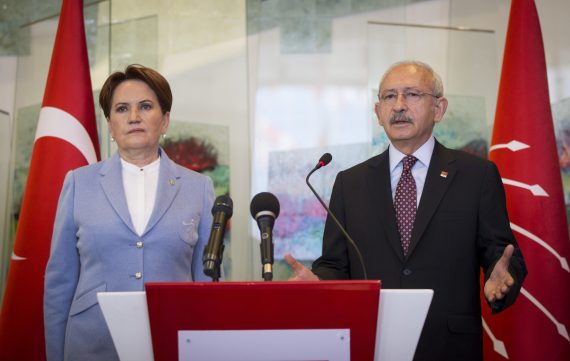Last week, the German Minister of State for Europe, Michael Roth, visited Turkey and met with members of the Turkish government, such as his counterpart Minister Omer Celik. Roth, who is a member of the Social Democratic Party of Germany (SPD), also paid a visit to Turkey’s main opposition party, the left-nationalist CHP, where he described Turkish democracy as “facing danger,” and subsequently, to the newly established Turkish nationalist party, the Iyi Party. Actually, it’s not very clear as to why a German minister considered a dissident and split party of the MHP, the Iyi Party, worthy to visit. The minister’s statements regarding the Iyi Party were also very strange and exaggerated, which made clear that he –and generally German foreign politicians focusing on Turkey– need some new advisors regarding Turkish politics and the country’s dynamics.
While Roth stressed the importance of Turkish-German relations, he also said that they foresee/predict that “Kurdish voters in the Southeast part of Turkey, who are in between the AK Party and HDP” will support the Iyi Party chairman, Mrs. Aksener. It’s not clear whom Roth means with “they foresee/predict…” The Social Democrats, his ministry or even the ruling coalition government of Germany? Independent from this prediction, it’s not quite understandable how a social democrat minister can supportively predict a nationalist and MHP-split new Turkish party’s alleged success in parts of Turkey, where, according to surveys, on the one hand, conservative voters generally prefer the AK Party, and on the other hand, Kurdish nationalist voters prefer secondly the separatist-Kurdish nationalist HDP. Consequently, the question arises by whom and with what kind of ambitions the minister is advised? In addition to this absurd situation, the ministers’ words exhibit clearly that there is no actual idea about Turkish voters’ dynamics and preferences. It’s already known that these days the German foreign office is lacking personnel. However, the fact that there is a similar expertise problem is also striking.
Besides that, it’s not a secret that German social democrats are very skeptical with regard to those MHP close ideas in general, although, most of the accusations are based on known prejudices. Even ironically, the ministers’ statement, which he tweeted subsequent to the tweet concerning the meeting with Mrs. Aksener, concerned a condemning message about “nationalism” in general. Independent from the point whether Roth has any concrete knowledge about nationalist approaches in Turkey or global nationalist ideas except the extreme problematic ethnic motivated German case, it’s a very weird situation that he declares his support for a newly established Turkish nationalist party while subsequently condemning nationalism as a general phenomenon. In addition, German media outlets and political circles address the new “People’s Alliance” (Cumhur İttifakı) –consisting of the AK Party and MHP– while stressing its “nationalist” component with a negative tone. But on the other hand, there is a supportive discourse on behalf of the newly established nationalist opposition party, Iyi Party.
Recommended
The current picture becomes more bizarre if one remembers the recent elections in Germany on September 24, 2017. Prior to that date, Turkish President Erdogan had asked Turks living in Germany, possessing German citizenship, to vote against some major German political parties. Following these statements, the German public and politicians harshly criticized the President and accused him of interfering in domestic affairs. In addition, the federal government recently set another ban against the election campaigns Turkish politicians intended to run in Germany with regard to the June 24 elections. By this, it should be clear that the main ambition is to prevent AK Party politicians’ meetings in Germany. Thus, it’s difficult to understand why a German minister does not see any problem in promoting a certain Turkish political party, while his government builds absurd barriers against certain Turkish politicians in Germany.
Of course, the German Minister of State, Roth, has the right to be interested in Turkish domestic politics, and of course, he can sympathise with a certain Turkish political party – even as a social democrat he may support a newly established Turkish nationalist party. Furthermore, he has the right of not having any idea about the dynamics of Turkish voters – in particular regarding the southeast region. But one should keep in mind that amid the election campaigns in Turkey, a German minister’s statements and active standpoints, which favor a certain political party, are definitely not in compliance with the Germans’ own alleged standpoints. That is to say, for instance, not to interfere in domestic affairs. These kind of –and generally unfairly addressed– issues are unfortunately on the table with respect to the Turkish government; even if the Turkish government just addresses certain issues concerning Turkish citizens living in Germany. Thus, the federal government has to be sincere and diminish its obvious and continuous double standards. If a country permanently tries to prevent certain Turkish politicians’ meetings in Germany by complaining about false aspects, then, one expects that the federal German government stops interfering in other’s domestic affairs, too. But before that, in order to expect better bilateral relations, one has to learn Turkey’s realities without illogical wishful thinking.





